-
About us
- Gift Cards
- Plant Library
-
Events & Services

SHOP ALL EVENTS & SERVICES >
Stylist Appointments
Make & Take Workshops
Private Plant Workshops for Groups
Corporate Planting Service
Commercial Landscaper Application
Spring Photo Sessions
Custom Arrangement Request
Plants & Pots-
Planters & Accessories
-
Garden Bulbs
- All Garden Bulbs
-
Seeds
- Potatoes
-
Perennials
-
Trees & Shrubs
- All Trees & Shrubs
-
Shrubs
- Sod
- Trees
- Fruit Trees
- Not available for online purchase

SHOP ALL PLANTS & POTS >
Planters & Accessories
Planters
Plant Accessories
House Plants
Citrus Trees
Seasonal
Trendy Tropicals
Succulents & Cacti
Potted Plants
Garden Bulbs
Bulbs
Seeds
Potatoes
Annuals
Herbs
Hanging Baskets
Custom Planters
Perennials
Shade
Shade-Ground Cover
Sun
Sun-Alpine
Vines
Trees & Shrubs
Evergreen
Shrubs
Sod
Trees
Fruit Trees
Not available for online purchase
Plant Care-
Plant Fertilizer
- All Plant Fertilizer
- Houseplant Fertilizer
-
Fertilizer for Perennials & Annuals
- Trees, Shrubs & Evergreens
-
Pest Control
-
Growing Supplies
-
Lawn Care
-
Bagged Soil, Rocks & More
- Beneficial Garden Insects
-
 Rick's Top Products
Rick's Top Products

SHOP ALL PLANT CARE >
Plant Fertilizer
Houseplant Fertilizer
Fertilizer for Perennials & Annuals
Trees, Shrubs & Evergreens
Pest Control
Rodent Control
Fungicides
Insects
Growing Supplies
Soil Meters & Testing
Lawn Care
Lawn Fertilizer & Seed
Weed Control
Sod
Bagged Soil, Rocks & More
Bagged Soil
Soil Amendments
Decorative Rocks
Tools
Gardening Gloves
Watering Tools
Gardening Tools
New Products
Beneficial Garden Insects
Rick's Top Products
Fashion-
Accessories
-
Tops
- All Tops
- Blazers
- Bodysuits
- T-Shirts & Shirts
-
Sweaters & Cardigans
- Tanks
- Bras & Bralettes
-
Bottoms
- Dresses
- Rompers & Jumpsuits
-
Outerwear
-
Loungewear
- Shoes

SHOP ALL FASHION >
Styled By Dutch
Alex's Picks
Western Inspired
Back to Basics
Stampede & Craven Fits
Accessories
Intimates
Hats
Hair Accessories
Jewelry
Handbags & Wallets
Tops
Blazers
Bodysuits
T-Shirts & Shirts
Sweaters & Cardigans
Tanks
Bras & Bralettes
Bottoms
Denim
Leggings
Shorts
Skirts
Pants
Dresses
Rompers & Jumpsuits
Outerwear
Coats & Jackets
Toques, Scarves & Gloves
SALE
50% OFF Select Outerwear
50% OFF Fashion
50% OFF Select Dresses
50% OFF Select Brunette The Label
Loungewear
Socks & Slippers
Sleepwear
Shoes
Home & Lifestyle-
Beauty & Wellness
-
Kitchen & Bar
-
BBQ & Accessories
-
Outdoor Living
-
Oils & Vinegars

SHOP ALL HOME & LIFESTYLE >
Home Decor
Stationery
Candles
Artificial Plants
Furniture
Glassware
Wall Decor
Lamps & Lighting
Tabletop Decor
Beauty & Wellness
Soaps & Lotions
Skincare Tools
Essential Oils & Diffusers
Kitchen & Bar
Dining
BBQ & Accessories
Grills
Grill Accessories
Pellets
Sauces
Spices & Seasonings
Food & Drink
Spices & Seasonings
Summer Drink Essentials
Food
Condiments
Dips & Toppings
Gift
Gadgets & Novelties
Travel
Outdoor Living
Garden Decor
Fountains & Statuary
Oils & Vinegars
Infused Oils
Balsamic Vinegars
SALE
50% OFF Home & Lifestyle
Baby & KidSHOP ALL BABY & KID >
Baby & Kid Accessories and Toys
Baby & Kid Apparel
Plant Library
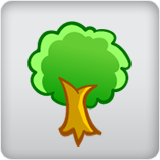
Weeping Blue Spruce
Picea pungens 'Pendula (tree form)'
Height: 10 feet
Spread: 5 feet
Sunlight:

Hardiness Zone: 2b
Other Names: Blue Colorado Spruce;Colorado Blue Spruce
Description:
A weeping and trailing spire-like tree, with dusty blue pointy needles held on sharply trailing branches, almost skirted in appearance; durable and very hardy, a most emphatic accent tree to say the least
Ornamental Features
Weeping Blue Spruce is primarily valued in the landscape or garden for its cascading habit of growth. It has attractive silvery blue evergreen foliage. The needles are highly ornamental and remain silvery blue throughout the winter.
Landscape Attributes
Weeping Blue Spruce is a dense evergreen tree with a strong central leader and a shapely form and gracefully arching branches. Its relatively fine texture sets it apart from other landscape plants with less refined foliage.
This is a relatively low maintenance tree. When pruning is necessary, it is recommended to only trim back the new growth of the current season, other than to remove any dieback. Deer don't particularly care for this plant and will usually leave it alone in favor of tastier treats. It has no significant negative characteristics.
Weeping Blue Spruce is recommended for the following landscape applications;
- Accent
- Vertical Accent
- General Garden Use
- Container Planting
Planting & Growing
Weeping Blue Spruce will grow to be about 10 feet tall at maturity, with a spread of 5 feet. It tends to be a little leggy, with a typical clearance of 1 foot from the ground, and is suitable for planting under power lines. It grows at a slow rate, and under ideal conditions can be expected to live for 70 years or more.
This tree should only be grown in full sunlight. It is very adaptable to both dry and moist growing conditions, but will not tolerate any standing water. It is considered to be drought-tolerant, and thus makes an ideal choice for xeriscaping or the moisture-conserving landscape. It is not particular as to soil type or pH, and is able to handle environmental salt. It is highly tolerant of urban pollution and will even thrive in inner city environments. This is a selection of a native North American species.
Weeping Blue Spruce is a fine choice for the yard, but it is also a good selection for planting in outdoor pots and containers. Because of its height, it is often used as a 'thriller' in the 'spiller-thriller-filler' container combination; plant it near the center of the pot, surrounded by smaller plants and those that spill over the edges. It is even sizeable enough that it can be grown alone in a suitable container. Note that when grown in a container, it may not perform exactly as indicated on the tag - this is to be expected. Also note that when growing plants in outdoor containers and baskets, they may require more frequent waterings than they would in the yard or garden. Be aware that in our climate, most plants cannot be expected to survive the winter if left in containers outdoors, and this plant is no exception. Contact our experts for more information on how to protect it over the winter months.

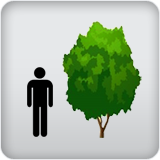
 Characteristics
Characteristics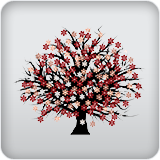
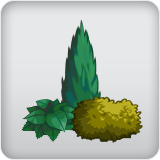
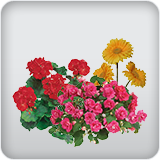
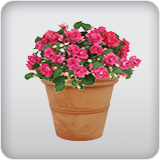 Applications
Applications


 Features & Attributes
Features & AttributesA NetPS Plant Finder tool
Secure PaymentComplies with all major credit cardsEstablished in 1953Local & Family OwnedEasy Returns & ExchangesUp to 30 days from purchase

 Stylist Appointments
Stylist Appointments
 Make & Take Workshops
Make & Take Workshops
 Private Plant Workshops for Groups
Private Plant Workshops for Groups
 Corporate Planting Service
Corporate Planting Service
 Commercial Landscaper Application
Commercial Landscaper Application
 All Jewelry
All Jewelry
 Handbags & Wallets
Handbags & Wallets
 Summer Drink Essentials
Summer Drink Essentials
 All Oils & Vinegars
All Oils & Vinegars
